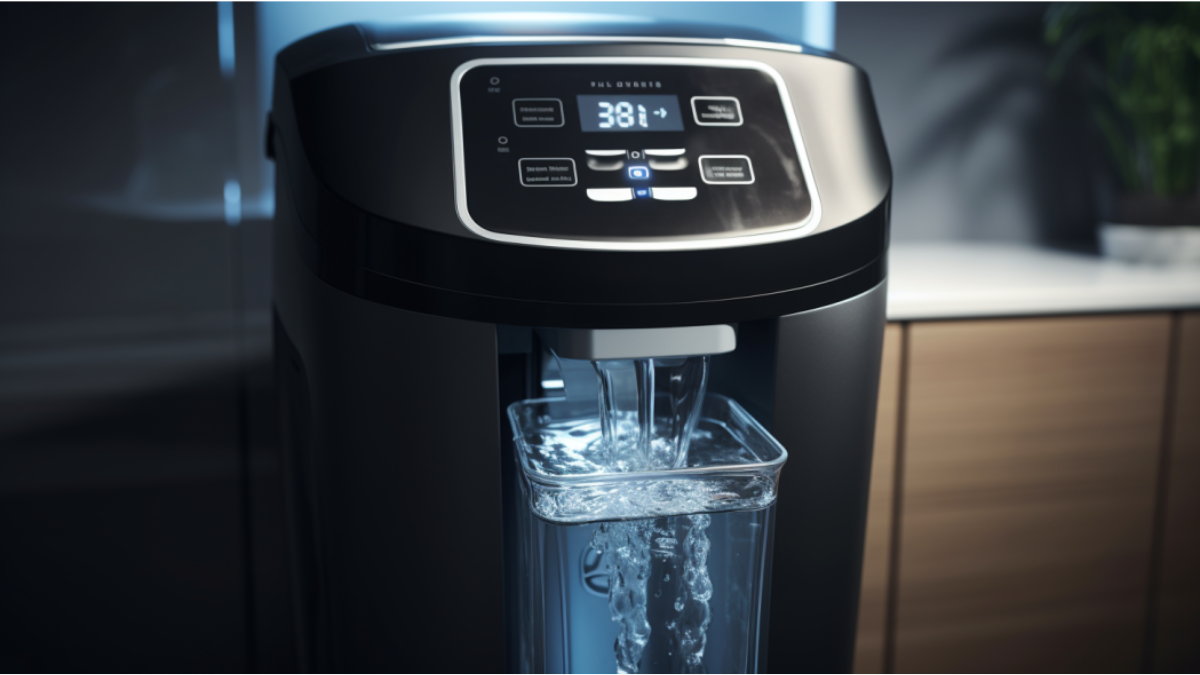Are you tired of dealing with hard water problems like scaling and appliance damage? Water softeners can be a great solution, but it’s important to set the hardness level correctly for optimal performance. In this article, we’ll explore the factors that affect water hardness and how to control it effectively with the best softener setting.
First, let’s discuss the basics of water softeners. These devices remove the minerals that cause water hardness, such as calcium and magnesium. Water passes through a resin tank, exchanging the minerals for sodium ions. The softened water then flows into your home or business, providing better water quality and protecting your appliances from damage.
But to ensure your water softener is working properly, you must set the hardness level correctly. Keep reading to learn more about measuring and adjusting hardness settings for the best control of water hardness.
Key Takeaways
- Water softeners operate with a hardness setting that should be adjusted carefully to avoid poor hardness removal or wasting water and salt.
- Testing water hardness and iron levels and monitoring salt usage are important to ensure optimum softener performance.
- Softeners remove hardness through an ion exchange process with resin beads, and regeneration involves flushing resin with a saltwater solution.
- Each brand has unique characteristics and specific instructions for adjusting the hardness setting, and routine quality checks are important to maintain the softener’s efficiency.
Water Softener Basics
You already know that water softeners improve water quality by operating with a hardness setting, but let’s dive into how they work.
Water softeners use an ion exchange process with resin beads to remove hardness from water. The resin beads are negatively charged, attracting positively charged minerals like calcium and magnesium, mainly contributing to water hardness. The resin beads are flushed with a saltwater solution during regeneration to recharge them for the next cycle.
Softener maintenance is crucial for optimal performance and longevity. Common issues with water softeners include clogging the resin beads, salt bridging (when salt forms a hard layer in the tank), and incorrect hardness settings.
It’s important to monitor salt usage and adjust regeneration cycle settings based on water usage and hardness levels. Routine quality checks, such as testing water hardness every month, can help catch any issues early on. With proper maintenance and monitoring, water softeners can provide high-quality, soft water for many years.
Measuring and Testing Hardness
Measuring and testing the hardness level in your water supply is crucial for determining the appropriate adjustment for your water softener. Hardness is typically measured in grains per gallon (gpg) or parts per million (ppm).
There are different ways to test the hardness level of your water. You can opt for a home test kit or have your water analyzed by a lab. Alternatively, you can contact your local water department to have them test the hardness level for you.
It’s important to note that the accuracy of home test kits may vary and may not be as reliable as lab analysis or testing by your water department. Public water departments may also have more comprehensive testing procedures, including checking for other impurities or contaminants.
However, home test kits are generally more cost-effective and can provide a quick result. Ultimately, your testing method will depend on your budget, time, and specific needs.
Adjusting Hardness Settings
To ensure the optimum water softener performance, it is important to adjust the hardness level based on the type of water supply and iron concentration. The ideal setting for your water softener will depend on the specific needs of your household. Setting the hardness level too low can result in poor removal of hardness and scaling/appliance damage while setting it too high can waste water and salt. It is important to find the right balance to achieve the best results.
One way to determine the appropriate hardness setting for your water softener is by testing the water with a home test kit, lab analysis, or public water department. Once you have determined the hardness level of your water, you can adjust the settings of your water softener to match.
Common mistakes when adjusting the hardness setting include setting it too low or too high, failing to account for iron concentration, and not adjusting for changes in water hardness over time. Suppose you experience issues with your water softener, such as decreased water pressure or hard water residue. In that case, troubleshooting may involve adjusting the hardness setting or increasing the frequency of regeneration cycles.
Conclusion
Congratulations! You know the basics of controlling water hardness and setting the best water softener settings. By understanding the factors that affect water hardness and using proper testing methods, you can ensure that your water softener is set correctly to provide optimal performance.
Remember to adjust the hardness settings as needed to maintain the desired level of hardness control. With this knowledge, you can enjoy the benefits of soft water, including improved water quality and extended appliance lifespan.
Don’t forget to regularly maintain your water softener system to keep it running smoothly. By taking the time to control water hardness, you can make a positive impact on your home or business and enjoy the benefits of soft, high-quality water.
